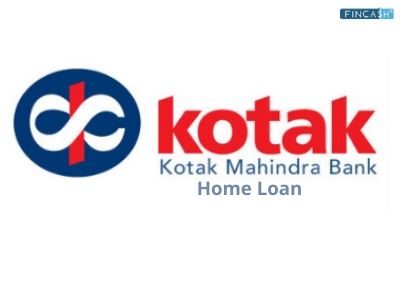Benefits of Taking a Joint Home Loan
For many, buying a home is a once-in-a-lifetime investment. A joint mortgage or shared mortgage can significantly boost affordability and ease the burden of home ownership.

While home loans are available to most buyers, eligibility often depends on age, Income, and any existing debts. By choosing a joint Home Loan application, you can pool incomes and improve your chances of securing a larger loan. Additionally, female co-owners may enjoy a lower interest rate. Sounds interesting, right? In this post, let’s learn more about the benefits of taking a joint home loan and other aspects of it.
Who Can Be a Co-Applicant?
Immediate Family members, such as spouses or parents, can act as co-applicants, and in some cases, even joint mortgage with parents is possible. The co-applicant doesn’t necessarily have to be a co-owner of the property, though it may increase eligibility. Those who can be co-applicants include individuals who are:
- Salaried
- Self-employed
- Non-Resident Indians (NRIs)
Co-Applicant vs. Co-Owner
It's essential to understand the difference between a co-owner and a co-applicant. A co-owner holds joint property ownership, whereas a co-applicant doesn't have to be a part-owner. The rule is that while all co-owners can be co-applicants for the home loan, not all co-applicants need to be co-owners. Only the co-applicant's income is considered for loan evaluation.
Talk to our investment specialist
Advantages of Taking a Joint Home Loan
Taking a joint home loan can help in varying ways, such as:
1. Higher Loan Eligibility
By applying with a co-applicant, your joint home loan eligibility increases significantly. Pooling income gives you access to a larger loan amount, making it easier to buy a better home.
2. Higher Tax Benefits
Co-applicants who are also co-owners can enjoy greater tax benefits. Each person can claim deductions for home loan repayment, leading to higher collective tax savings:
Principal Repayments: Deductible under Section 80C up to ₹1.50 lakh
Interest Payments: Under Section 24, up to ₹2 lakhs for self-occupied properties. The full interest is deductible with no upper limit if the property is rented out.
Since each co-applicant is eligible for these deductions separately, the total tax benefits can be significantly higher. The amount each co-applicant can claim depends on their contribution to the loan repayment.
3. Special Interest Rates for Women Co-Owners
Many lenders offer lower interest rates for women borrowers. This can make the joint home loan with parents or spouse a cost-effective way to buy a home. You can benefit from these discounted rates by including a female co-applicant, such as a spouse or daughter, resulting in significant savings over the loan tenure. These lower rates promote Financial Inclusion and empower women to achieve homeownership.
4. Simplified Repayment
Repaying a home loan can be a long-term commitment, but joint loans can ease the burden:
- Shared Responsibility: The loan repayment is shared between co-applicants, lightening the financial load on individuals.
- Combined Income: Higher combined incomes allow for larger EMI payments, helping to repay the loan faster.
- Flexible Repayment: Co-applicants can decide how to split repayments according to their financial capacity, Offering flexibility in managing the loan.
5. Easier Repayment
With a joint mortgage, the repayment responsibility is shared. Having a co-applicant for your home loan eases the repayment process by sharing the responsibility between two people, reducing the burden of heavy EMIs on a single person. The joint responsibility can bring peace of mind, as both individuals are accountable for making timely payments. Registering a spouse or family member as a co-applicant can also increase their sense of ownership, making them more committed to repaying the loan on time.
Additionally, having a co-applicant may allow you to repay the loan faster. You can opt for higher monthly payments with two incomes contributing to the EMIs. This could shorten the loan tenure from 30 to 20 years or less, saving you significant money on interest payments over time.
How to Check Home Loan Eligibility?
You can use an online tool to check your eligibility, such as the joint mortgage pre-approval calculator. This tool provides an estimate of how much you can borrow based on a few basic details, such as:
- Gross income
- Loan interest rate
- Loan tenure
- Other liabilities, expenses, and EMIs
While this tool gives a rough estimate, the final decision will depend on factors like age, Credit Score (CIBIL Score), and existing debts. Your co-applicant's financial details, including their income and outstanding debts, will also affect the joint loan eligibility.
It is advisable to clear any significant debts before applying for a home loan, as this will increase your eligibility for a larger loan. The same applies to your co-applicant; having considerable debt can lower their eligibility and impact the overall joint loan application.
Considerations Before Taking a Joint Home Loan
Although a joint home loan offers many benefits, there are certain situations where it may not be necessary or could be disadvantageous, such as:
- You can meet the loan requirement on your own as a single applicant.
- You have a low credit score due to a poor credit history.
- You are already repaying a loan that is at your maximum eligibility.
- You are purchasing a smaller property for investment purposes but plan to buy a larger home.
- You are nearing retirement.
Conditions for Claiming Tax Benefits on a Property
If you wish to claim tax benefits on a property, you will have to keep these things in mind:
1. Co-Ownership of the Property
To claim tax benefits for a home loan, you must be a co-owner of the property. If a loan is taken jointly but the borrower is not listed as an owner in the property documents, they may not be eligible for tax benefits.
2. Co-Borrower Status
You must also be a co-borrower on the loan. Being an owner is not enough; you must be listed as a borrower in the loan documents. Those who are not borrowers and do not contribute to the EMI are not entitled to claim tax benefits.
3. Completion of Property Construction
Tax benefits can only be claimed from the financial year in which the construction of the property is completed. Benefits are not available for properties still under construction. However, interest paid before the completion can be claimed in five equal instalments starting from the year construction is completed.
Repayment Responsibility
Repaying a home loan is a shared and individual responsibility of all co-applicants. They can make payments individually or through a joint Bank account, depending on what works best for them.
Documentation
Submitting proper documentation is crucial to ensure a smooth and fast home loan process. This includes:
- KYC (proof of identity and address)
- Income proofs
- Property-related documents
All co-applicants must provide their KYC documents, while income proof is only required from those whose income is being considered for loan approval.
Conclusion
A joint homeowner loan offers multiple benefits, including higher loan amounts, greater tax deductions, reduced interest rates for women, and shared repayment responsibilities. These advantages can make the path to homeownership smoother and more financially manageable. Before proceeding, it's essential to carefully review the loan terms, understand the roles of all co-applicants, and assess the financial impact. Consulting with financial advisors also helps ensure a joint home loan aligns with your Financial goals. By leveraging these benefits, you can turn your dream of owning a home into reality while optimising your financial resources.
All efforts have been made to ensure the information provided here is accurate. However, no guarantees are made regarding correctness of data. Please verify with scheme information document before making any investment.












